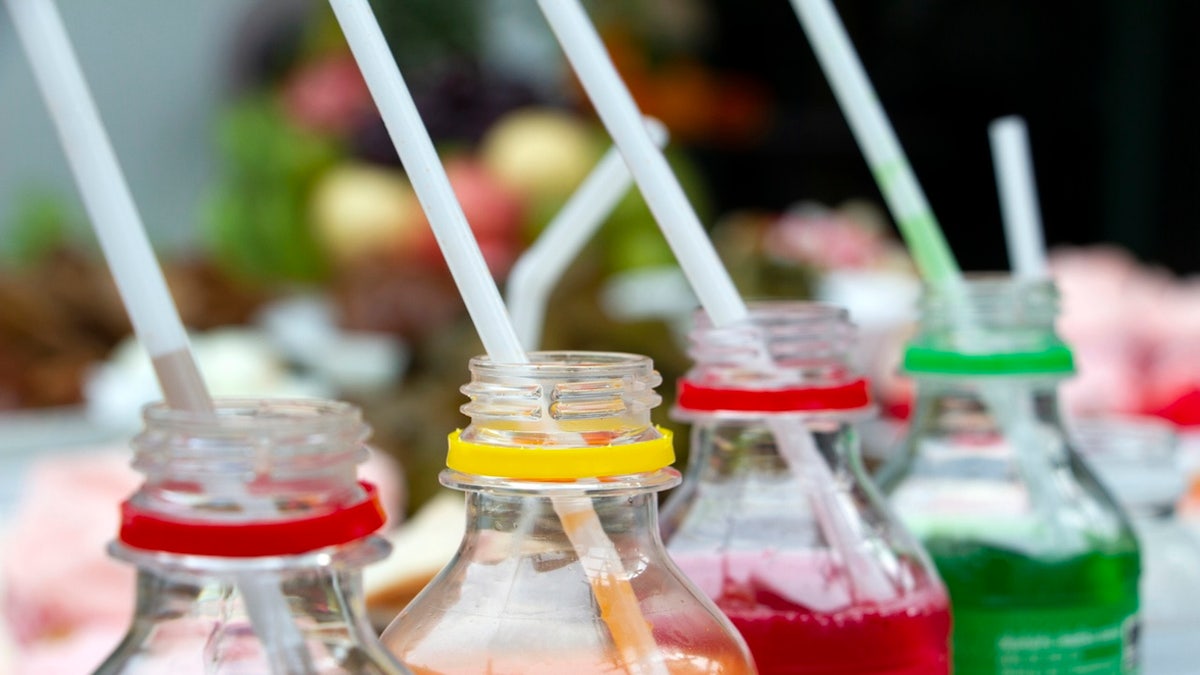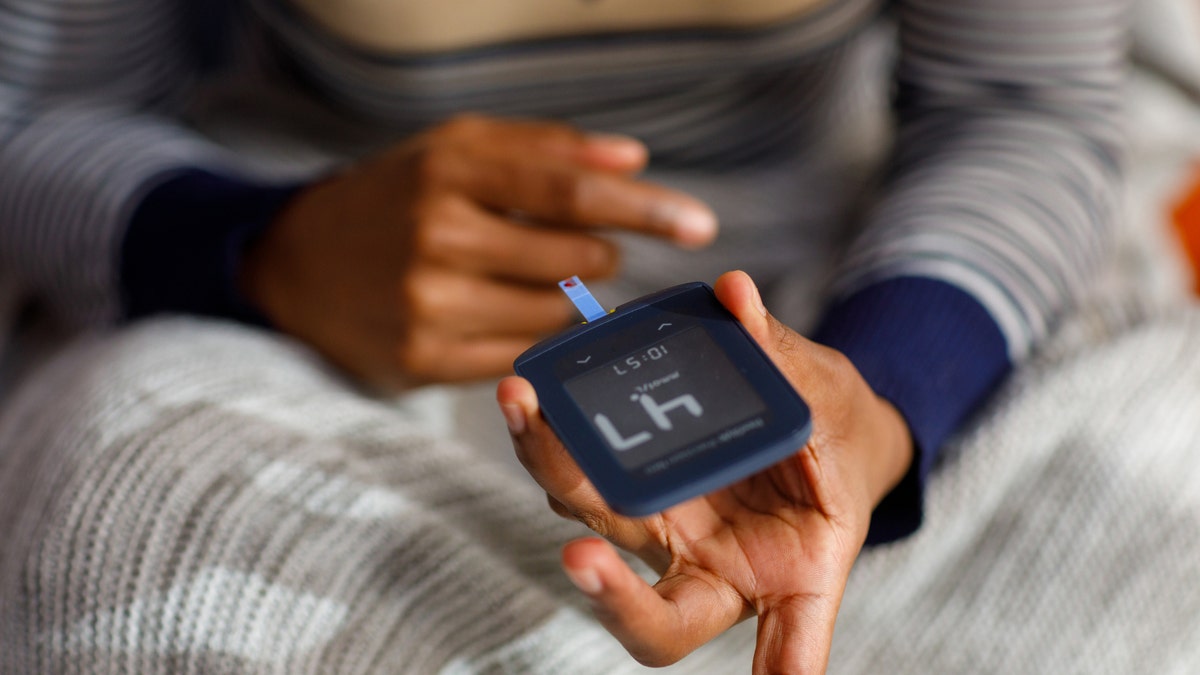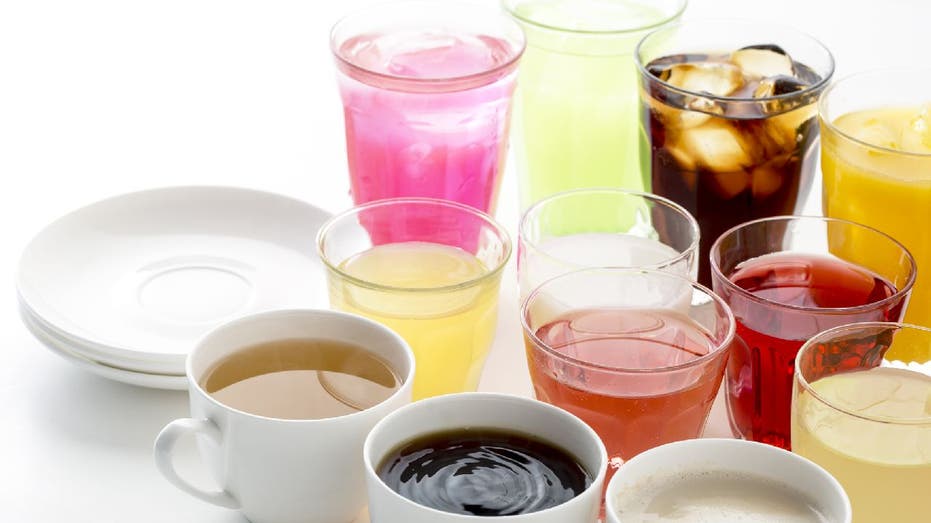Millions of new cases of diabetes and heart disease every year may be connected to the consumption of sugary drinks, according to newly published research, though there is some nuance to the findings.
Tufts University in Boston led the study, which found that about 2.2 million new diagnoses of type 2 diabetes and 1.2 million new cases of cardiovascular disease were potentially attributed to sugar-sweetened sodas and juices each year, according to a press release.
The findings were published in the journal Nature Medicine this week.
HEART ATTACK RISK COULD RISE WITH ARTIFICIAL SWEETENER CONSUMPTION, STUDY FINDS
The highest rates were found in Colombia, where 48% of new diabetes cases could be linked to sugary drinks, and in Mexico, where nearly a third of cases could be attributed to them, said researchers.
Meanwhile, in Latin America, the study found that more than 24% of new diabetes cases might be linked to sugary beverages, and 21% in sub-Saharan Africa, the study found.

In South Africa, 27.6% of new diabetes cases and 14.6% of cardiovascular disease cases might be attributed to sugary drinks.
Sugary drinks are rapidly digested, causing a spike in blood sugar levels with little nutritional value.
Sugary drinks cause blood sugar to spike because they are “rapidly digested,” the research team said.
When consumed on a long-term basis, these types of beverages, in addition to increasing the risk of type 2 diabetes and heart disease, may also lead to weight gain and insulin resistance, the researchers added.

Professor Dariush Mozaffarian, the study’s senior author, said in a university press release, “Sugar-sweetened beverages are heavily marketed and sold in low- and middle-income nations.”
He added, “Not only are these communities consuming harmful products, but they are also often less well-equipped to deal with the long-term health consequences.”
FRIENDS, FAMILY MAY PROTECT AGAINST HEART ATTACK, STROKE AND TYPE 2 DIABETES, STUDY SUGGESTS
Certain groups may be more likely to experience negative health effects from sugary drinks, including men and younger adults, the researchers noted, as news agency SWNS also said.
New Jersey-based registered dietitian Erin Palinski-Wade, who was not involved in the research, said the findings were to be expected, as diets rich in added sugars are more likely to increase the risk of chronic health conditions, including type 2 diabetes.

“Sugar-sweetened beverages are a major cause of added sugar in the diet and easy to overconsume, as they provide little fullness,” she told Fox News Digital.
“The high calorie content and lack of satisfaction due to little protein, fat or fiber in these drinks can lead to excess calorie consumption, which can lead to weight gain — especially gains in visceral fat (belly fat), which has been found to increase the risk of type 2 diabetes,” she went on.
“Sugar-sweetened beverages are easy to overconsume, as they provide little fullness.”
Palinski-Wade pointed out that there were some limitations to the new research.
“This was an observational study, not a causation study, and shows only an association between diets containing sugar-sweetened beverages and diabetes,” she noted.
“It does not prove that those drinks alone trigger an onset of type 2 diabetes.”
A spokesperson for the American Beverage Association, which is headquartered in Washington, D.C., shared comments with Fox News Digital about the study.
“The beverage industry is committed to promoting healthy diets.”
“The beverage industry is committed to promoting healthy diets and has concerns about limitations in the data and methodology applied to these results,” the organization said in response to the study.
“Given the lack of robust global dietary surveys and absent consideration of other environmental and lifestyle factors, accurately estimating consumption or attributing health outcomes to specific foods or beverages in isolation is nearly impossible,” the group also said. “Effective public policies must be built on a strong scientific foundation.”
CLICK HERE TO SIGN UP FOR OUR HEALTH NEWSLETTER
The group also said, “We acknowledge that too much sugar is not good for anyone; that’s why our industry is dedicated to reducing sugar in beverages by offering more choices with less or no sugar. We collaborate with governments and meaningful partners worldwide to address health and nutrition challenges.”
The study authors are calling for a “multi-pronged approach,” including public health campaigns, regulations on advertising and taxes on sugar-sweetened beverages, the release stated.
“We need urgent, evidence-based interventions to curb consumption of sugar-sweetened beverages globally, before even more lives are shortened by their effects on diabetes and heart disease,” first author Laura Lara-Castor, now at the University of Washington, said in the release.

Mexico implemented a sugary drinks tax in 2014, which has shown to be effective in reducing consumption, the researchers stated.
“Much more needs to be done, especially in countries in Latin America and Africa, where consumption is high and the health consequences severe,” wrote Mozaffarian.
For more Health articles, visit www.foxnews.com/health
“As a species, we need to address sugar-sweetened beverage consumption.”
Many different factors are involved in insulin resistance and type 2 diabetes, Palinski-Wade noted.
“As a species, we need to address sugar-sweetened beverage consumption.”
“However, reducing your intake of sugar-sweetened beverages can go a long way toward improving overall blood sugar regulation and future health.”
CLICK HERE TO GET THE FOX NEWS APP
The new research was supported by the Gates Foundation, the American Heart Association and Mexico’s National Council for Science and Technology.
Fox News Digital reached out to the researchers for further comment.
Health News Today on Fox News
Read the full article .


